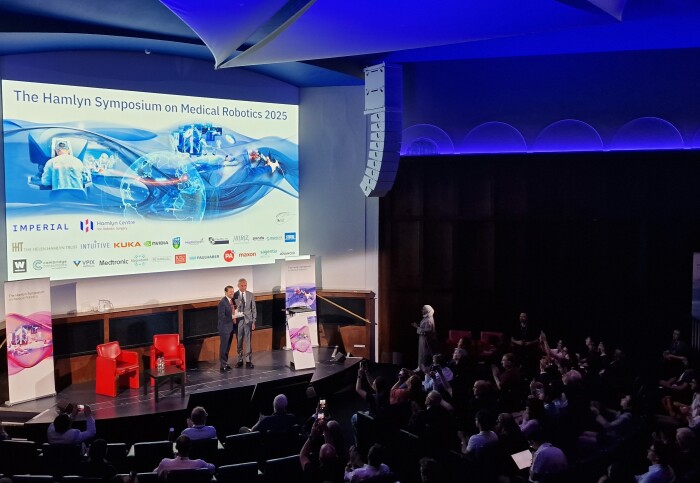Imperial's role in the COVID-19 pandemic
Imperial experts played a critical role in the COVID-19 pandemic, contributing to the understanding of the virus, predicting spread, and developing vaccines, diagnostics, and interventions.
Read more about how hundreds of our researchers pivoted to use their expertise to combat a global pandemic.
To address the constant threats from emerging and known infectious diseases, Imperial College London experts are working towards pandemic preparedness and prevention, regardless of what the threat is (viral, bacterial, or fungal; emerging or existing), where it takes hold, and who it affects.
More than 120 Imperial research groups are working to position us to anticipate, mitigate, and respond to future UK and global disease outbreaks, so that when the time comes, we can swiftly:
- Understand the infection threat as well as how our immune system reacts
- Predict and track the spread of disease
- Develop treatments, vaccines, and interventions in healthcare, ensuring that they can be manufactured and deployed on a global scale
- Develop diagnostic tools
- Inform and model the effectiveness of global response efforts that balance health against the economy by providing scientific evidence, understanding of human behaviour, and economic and epidemiological modelling
- Communicate effectively to policymakers and the public
- Leverage networks of collaborators and unique trial platforms
Exemplifying the interdisciplinary approach needed to tackle a pandemic or outbreak, these experts sit in 18 departments across all four Faculties, ranging from the Department of Infectious Disease to Civil and Environmental Engineering. Many of these experts - particularly those from the School of Public Health - are brought together within Imperial centres specifically focussed on pandemic preparedness, including the MRC Centre for Global Infectious Disease Analysis and the Abdul Latif Jameel Institute for Disease and Emergency Analytics.
On these pages, explore Imperial's strengths in pandemic preparedness, in the work of more than 120 multidisciplinary research groups and our participation in global collaborative trials, networks, and advisory groups.
Imperial's strengths in pandemic preparedness
Investigating the causes
Innovations in the clinic
Global impact
Accelerating the clinical translational pipeline
In a pandemic, it is important to rapidly develop, test, and translate research and ideas into interventions that can be deployed as impactful interventions and policies that keep people healthy and save lives. Imperial has the expertise, infrastructure, and connections to support this clinical translational pipeline, allowing us to pull ideas, information, data, and people together.
Explore the tabs to discover our strengths across the developmental journey from idea to impact.
Accelerating the clinical translational pipeline
- Translational resources
- Early-stage experimental trials
- Trials and contact databases
- Policy and NHS advice
- NIHR Imperial Biomedical Research Centre: Harnessing world-leading discovery science and clinical expertise to develop innovative therapeutics, devices and diagnostics for healthcare.
- Imperial College Academic Health Science Centre: Aligning the research, education and clinical care missions of the university and NHS partners to accelerate the translation of research into better patient outcomes and population health.
- Human Challenge studies: Carefully managed medical research studies to provide unique insights into immunity and disease progression.
- BioResource Centre - Imperial: Resource of data and samples that researchers can use to call up potential participants for studies to understand the links between genes, the environment, health and disease.
- NIHR HealthTech Research Centre in In Vitro Diagnostics: Evaluating and generating evidence for diagnostic tests to accelerate development and adoption.
- The Glycosciences Laboratory: Elucidation of carbohydrate recognition systems of biological and medical importance.
- The London Biofoundry: Enabling synthetic biology workflows through design, engineering and functional characterisation of synthetic DNA and organisms.
Imperial College London also benefits from access to databases and hospital-and clinical trial-based sample collection using established protocols.
- NIHR Imperial Clinical Research Facility: Supporting the delivery of early-phase and complex studies in purpose built facilities in NHS hospitals.
- Human Challenge studies: Carefully managed medical research studies to provide unique insights into immunity and disease progression.
- Real-time Assessment of Community Transmission (REACT) studies, including REACT1, REACT2, and REACT-Long Covid (REACT-LC): World’s largest coronavirus monitoring studies, which has consent to contact over 3 million adults in England.
- REMAP-CAP: A global research platform that uses a novel and innovative adaptive trial design to evaluate a number of treatment options. The trial – which currently includes >14,000 patients – delivered some of the most important treatments for COVID-19.
- ISARIC4C: International Severe Acute Respiratory Infection Consortium: UK-wide collaboration to answer urgent questions about emerging infections and public health threats quickly, openly, and for the benefit of all.
- INSTINCT (closed): COVID-19 Household Contacts Study
- ATACCC (closed): SARS-CoV-2 household transmission study
- UK Coronavirus Immunology Consortium (UK-CIC): Nationally targeted effort to understand the immunology of SARS-CoV-2 and COVID-19, and deliver real benefits to patients and public health at pace.
Membership and contributions to (examples):
- World Health Organisation
- SAGE: Scientific Advisory Group for Emergencies
- SPI-M-O: Scientific Pandemic Influenza Group on Modelling, Operational sub-group
- NERVTAG: New and Emerging Respiratory Virus Threats Advisory Group
- JCVI: Joint Committee on Vaccination and Immunisation
- GAVI: The Vaccine Alliance
- Virus Reference Department
- DELVE: Data Evaluation and Learning for Viral Epidemics
- SET-C: Science in Emergencies Tasking - COVID









